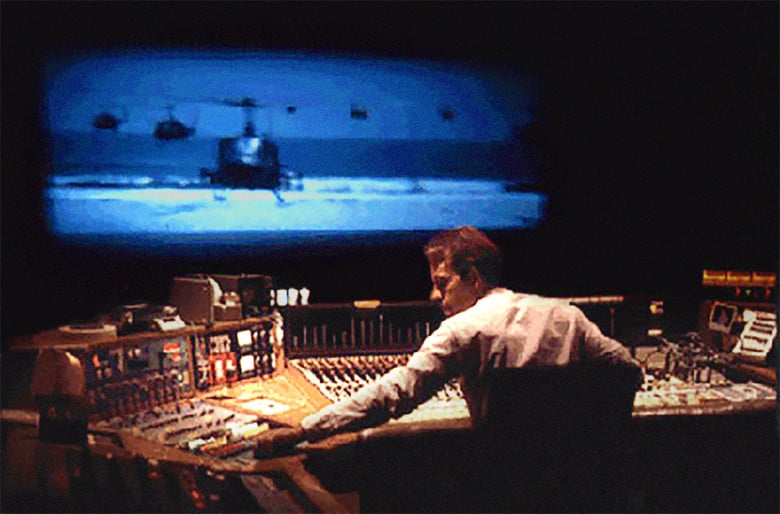A Short History (and Future) of Choir Music in Movies

Adrian Daub has noticed something unusual about choir music in movies: usually, we can’t understand the lyrics. For some reason, it’s important to have human voices rather than an instrument or orchestra carrying the musical load, but the linguistic content, whether it’s in pseudo-Latin, a made up Tolkien language, or Sanskrit translations of Welsh, usually might as well be empty.
This dates from the 1930s, when sound in movies got sophisticated enough to handle simultaneous polyvocal sound, the era of movie musicals and Snow White and the Seven Dwarfs:
And then there was Dimitri Tiomkin’s score for Frank Capra’s Lost Horizon (1937). The film concerns the discovery of Shangri-La in the Himalayas, and when we finally get to the fabled land the soundtrack accompanies the matte-painted wonderland with a chorus singing in… well, in a language that isn’t English and doesn’t seem to be Tibetan either. And thus another Hollywood tradition was born: film choruses belting out perfectly nonsensical prose with utter conviction.
The film’s producers tried to claim that the choral music from Lost Horizon was rooted in Tibetan folk traditions, but this, Daub writes persuasively, is plainly nonsense, and nonsense about nonsense to boot. What matters isn’t the sense, but the feeling, not the authenticity, but the cinematic je-ne-sais-quoi (literally, je ne sais rien) of the music.
What’s more, music choirs (even the nonsensical, polyglot ones) have gone digital and programmable:
The EastWest Symphonic Choirs software allows you to make a virtual choir sing in just about any style imaginable. Want your ooos and aaas to sound like a whisper? More Broadway or more classical? All of that’s in the package.
But there’s more: Due to a system called WordBuilder, you can have this choir sing pretty much anything — you can type in text in English, in phonetics, or a proprietary alphabet called Votox, and the software will assemble it out of a massive databank of vowels and consonants…
All the professional singers I spoke to were keenly aware of products like EastWest Symphonic Choirs and the sample libraries — because more likely than not they’re in them. If you’re in the business of singing on film, these days you won’t always be asked to sing for an actual score, but instead you might get booked to record samples. There’s a scary possibility that these artists are slowly eroding the industry’s need for their labor — that the fruits of their one day of paid work will perform for the studios in perpetuity and with no extra residuals.
At the moment, though, singers come pretty cheap — and in many cases, even a union shop in a city like London (a favorite of movie music producers for just this reason) might insist only on a set rate without residuals. They’re even good at singing their way around nonsense:
As the soprano Catherine Bott said: “You enter a studio and you open the score and off you go. You sing what you’re told, and it’s all about versatility, just being able to adapt to the right approach, whatever that may be for that conductor or that composer.” And part of that, singers told me, was singing the words — whatever they may be. As Donald Greig pointed out to me, a lot of these singers have training in classics; they certainly know their way around a Requiem or a Stabat Mater. And yet often enough when they step into Abbey Road they’re being asked to sing perfectly nonsensical phrases in pseudo-Latin — but the studio is booked, the clock is ticking, and as Bott put it, “that’s not the time to put up your hand and, you know, correct the Latin.”
But the thing is, many of us have some experience being sung at in Latin we don’t understand — it’s the Catholic mass. And as Daub writes, the emotional content of the mass (and the accompanying tradition of Latin choral music) has never depended on its intelligibility — in fact, it’s often benefitted from the fact that few if any of the audience could understand what is being said word for word.
Whether they’re after a feeling of evil (as in The Omen), magic (Harry Potter), exotic African-ness (the misplaced Swahili of The Lion King), or familiarity (Black Widow’s callback to the theme from The Avengers), movie producers are literally counting on familiar human voices being misunderstood.





Stay Connected